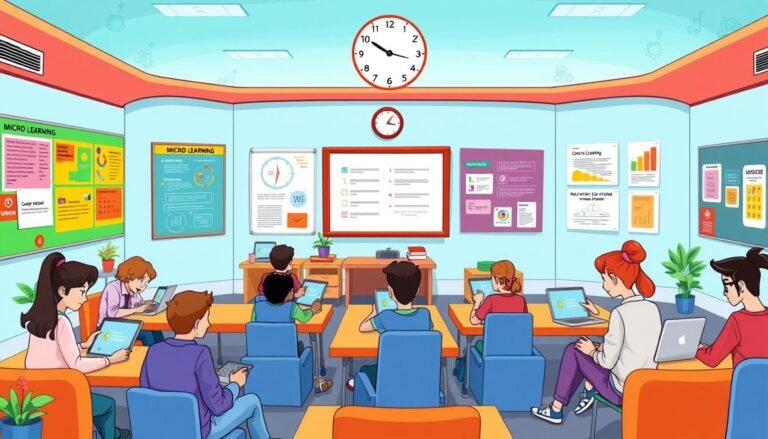What are the top challenges facing HR departments in Ireland in 2024?
In 2024, HR departments in Ireland face critical changes. They must play a bigger role in their organizations. They are working hard to handle talent shortages, go digital, and make employees happier.
In Ireland, 90% of those surveyed report a lack of skills. This is especially true for operational and leadership roles. HR is under pressure to quickly set up training programs to fill these gaps. Over half of workers around the world need new skills by 2025.
The use of hybrid work is growing in Ireland. A big 40% of companies are increasing it, and 33% are adding flexitime. But only half of managers know how to lead these new working styles. They need better training.
Mental health at work is also a big issue in Ireland. Many point to heavy workloads as a reason for mental health problems. This shows the need for strong well-being programs at work.
Looking ahead, linking HR with detailed people data, making work better for everyone, and improving leadership training are key. HR in Ireland needs to find new and smart ways to meet the challenges of 2024. This will help create strong and flexible workplaces.
Talent Acquisition in a Competitive Market
In today’s Ireland, finding and hiring the best talent is a big challenge. This is even more true with more competition expected in 2024. To stay ahead, companies need to refine their hiring approaches. They should focus on making their brand attractive, using AI and new tech for hiring, and offering great pay.
Employer Branding and Growth Opportunities
Having a great employer brand is key. It helps bring in new talent and keeps the current team happy. Many schools and companies find it hard to attract skilled workers. A strong brand shows off what a company stands for and offers. It makes interest in joining grow. This step is very important for companies wanting to shine in a big crowd.
Use of AI in Recruitment
AI and new tech can make hiring easier and better. They speed up the process and help find the best people. But, using these tools smartly is crucial. They should fit well with the company’s overall hiring plan.
AI is also great for making a candidate’s experience personal and positive. This is a key part of a good employer brand. It helps find the right people and makes them feel good about the process.
Compensation Packages
Offering a solid pay and benefits is vital to lure top talent. Cities with high living costs need special attention. Companies should think beyond just salaries. Things like bonuses and help with housing are important.
With the economy changing always, firms must keep up. They should adjust their pay plans to keep attracting the best. This focused stance on pay is crucial for solving hiring issues.
Remote Workforce Management and Hybrid Models
Leading a remote workforce needs creative plans and hybrid work setups that work well. As more people work from home, keeping everyone together can be tough. Teams often find it hard to communicate and stay on the same page.
Effective Communication Strategies
Good communication is key to managing remote teams successfully. Being clear and regular in how you talk can make distant and local employees feel closer. Using the right digital tools and setting communication rules can improve teamwork and make tasks run smoother.
When everyone hears and speaks clearly, a team dynamic grows, even if they’re miles apart.
Developing Remote Work Policies
For hybrid models to work, having good remote work policies is essential. Some companies still need to create detailed policies for remote work. These policies should set expectations, work hours guidelines, and virtual meeting rules. They help employees know what’s expected, making the work atmosphere fair and productive.
Making and updating these policies regularly keeps the company ready for any changes.
Fostering Employee Belonging
With the move to hybrid work, making employees feel they belong is critical. Encouraging team efforts and giving clear remote work duties builds a strong team feel. HR can come up with ways to connect remote workers, like fun online team activities and regular catch-ups. This makes every employee feel they really matter, which keeps morale and work quality high.
Skills Gap and Workforce Upskilling
In Ireland, many companies are facing the skills gap issue. The shortage is mainly in areas like IT, operations, leadership, and finance. Around 91% of companies say they struggle to find skilled workers.
Leadership and influencing skills are big needs right now. A survey found that most companies lack these skills. To fix this, many are boosting their HR workforce development. They’re focusing on training to improve leadership and tech skills.
About 82% of companies see how important learning is for hiring and keeping good employees. They know strong learning programs are key to tackling the skills gap. Since there’s high competition for skilled workers, leadership training is more vital than ever.
Moreover, 40% of companies want to use hybrid work more. This change comes to meet needs like saving money, using more automation, and adjusting to what workers want. Leaders need to support a culture that helps in a hybrid work setup. This includes offering programs to help workers learn and grow.
To solve the skills gap in Ireland, companies need to be active. They should focus on learning, solid workforce upskilling plans, and engaging workers in a hybrid setup. These steps will not just fill in skill gaps now. They will also make companies ready for whatever lies ahead.
Ensuring Workplace Diversity and Inclusion
Workplace diversity and inclusion are vital for success today, especially after the pandemic. In Ireland, companies are focusing on their employees’ well-being and using new ways to work. They’re doing this through strong DEI initiatives to meet the challenges of hybrid work and the digital age.
DEI Initiatives Post-Pandemic
Companies must commit to DEI after the pandemic, according to recent studies. They found that heavy workloads are hurting employees’ mental health. This shows the importance of making workplaces diverse and inclusive.
Surprisingly, only a few managers in Ireland know how to manage hybrid work well. This highlights the urgent need for training them in diversity principles. This training could improve how they manage every day.
Building an Inclusive Company Culture
Creating an inclusive culture helps companies attract and keep talent. A lot of companies have trouble finding skilled workers for jobs. Making the workplace more inclusive can help by inviting a wider range of talents.
Many companies are moving towards hybrid work and flexitime to meet their employees’ varied needs. As technology continues to change how we work, companies are finding ways to make sure everyone can contribute. This is essential for a diverse and high-performing team.
The HR department plays a big role in making workplaces more diverse. They’re working to give employees better experiences and make a strong culture of inclusion. This aims not just to meet fairness goals but to make organizations stronger and more resilient.
Compliance with Regulations and Employment Laws
Maintaining regulatory compliance is key for HR departments in Ireland. They must keep up with changes in the law. Now, employers need to make sure their policies match new legal rights.
Updating Policies and Procedures
Statutory sick leave is extended from three to five days since January 1, 2024. It is now at a maximum of €110 per day. By the end of 2024, a pension auto-enrollment will start.
This will apply to employees aged 23 to 60, making over €20,000 each year. Employers have to update their HR policies well. They need to cover these changes and others, like probation rules and new parental leave laws.
Training Managers on Legal Requirements
It’s crucial to train managers on legal HR requirements. This helps them follow the latest rules correctly. With parental leave now at nine weeks starting August 2024, managers need to know the right ways.
Managers also need to be aware of maternity and adoptive leave rules. Certain fields, like pharmaceuticals and finance, need special training. This is to ensure they meet their unique compliance needs.
By updating policies and training managers well, companies can meet Ireland’s complex legal standards with ease.
Mental Health and Employee Well-Being

Today, many workplaces are putting a big focus on mental health and employee well-being. They’ve found that managing how much work everyone has to do is a key part of this. In Ireland, over half of the organizations say too much work is hurting their employees’ mental health. So, to have a healthy and effective team, it’s crucial to handle workloads well.
Workload Management
It’s clear that managing workloads well can help cut down on stress at work. When people have too much to do, it can really affect their mental health and even make them physically sick. Changing how tasks are assigned and making sure everyone’s workload is reasonable can make a big difference. This helps create a work environment that’s not just about work, but also about health and happiness.
Mental Health Support Initiatives
To really boost employee well-being, workplaces should have strong mental health programs. This means investing in mental health services, teaching managers how to handle employee absences, and creating a work culture that supports mental health. These steps don’t just help when people are already struggling – they also stop burnout before it starts.
Promoting Work-Life Balance
Having a good work-life balance is key to keeping employees happy and wanting to stay in their jobs. To help with this, workplaces need to make sure employees can stop thinking about work when they’re off the clock. More and more places are moving to hybrid work models and flexible hours to help with this. A good work-life balance not only reduces quitting but also makes employees healthier and happier overall.
Digital Transformation and Automation
Today, businesses must keep up with change to stay ahead. They do this through HR digital transformation and workplace automation. These changes are driven mainly by technology, AI, and automation. Many organizations are boosting their digital efforts. They’re integrating automated HR tasks, data analytics, and online learning.
In Ireland, 91% of businesses lack key skills, especially in daily job roles. Leaders and those who drive change are needed most. To fix this, 82% agree that teaching new HR tech to employees is critical.
About 40% of companies will use a mix of office and remote work more. A third is thinking about offering more work time flexibility. Using AI in HR processes is key here. It can make hiring, managing employees, and keeping them happy easier.
About half of all bosses haven’t had training to handle both office and remote teams well. This shows a need for broad digital teaching. It should prepare leaders for the mix of office and remote work.
Digital change isn’t just about the newest tech. It’s about decisions that involve everyone and reach business goals. By mixing in AI in HR processes, companies can do better at keeping good workers, lowering staff turnover, and creating a unified, flexible team.
As we move into a new way of working, using both machines and people’s skills will be key. Smart HR tech and new HR tools will help a lot. They are important for meeting the big goals businesses have.
Employee Engagement and Retention Strategies
In today’s work world, it’s crucial to keep employees engaged and stay with the company. Recent surveys show only 32% of workers are deeply involved in their jobs, highlighting a big challenge for HR. They need to work on creating a positive employee experience.
Building a Positive Employee Experience
A good work environment links closely to keeping staff and growing the business. A Deloitte report found 76% of workers want to grow in a special way. By offering tailored growth plans and improving daily work life, companies can boost employee engagement. This can also help cut down on the huge $1 trillion loss from less productivity caused by sadness and worry.
Internal Mobility and Career Development
For keeping employees around, giving them chances to grow within the company is key. A LinkedIn survey found that 87% like working from home often, tying into more flexible job paths. The World Economic Forum says over half of employees worldwide will need new skills by 2025 to keep up.
So, it’s important for companies to focus on career development and move up the ladder within the company. This makes sure the organization is ready for the future and shows a real commitment to helping workers grow.
Conclusion
In 2024, HR teams in Ireland will face many challenges and chances to shine. They need strong plans for finding the best people and using new tech. With most HR departments (75%) finding it hard to hire and keep top talent, they must think of new, smart ways for managing people.
60% of HR professionals find it tough to keep up with changing labor laws. They have to be quick to update policies. Also, almost half of companies (45%) struggle with using new HR technologies. This shows the importance of solutions like Bob to help improve and keep things running smoothly for everyone, no matter where they are.
When it comes to mental health and well-being, many HR teams (only 30%) don’t feel ready to tackle these issues. It’s key to have strong health programs and strategies that put employees first. Also, HR leaders agree (80%) that helping their team learn new skills is very important. This helps bridge the skills gap and makes the workforce ready for change.
The future success of HR in Ireland hinges on their ability to face these big problems with creative, future-focused answers. By tackling these challenges head-on, HR departments can lead their organizations to triumph. They can also create a work environment where everyone thrives and keeps up with the times.








